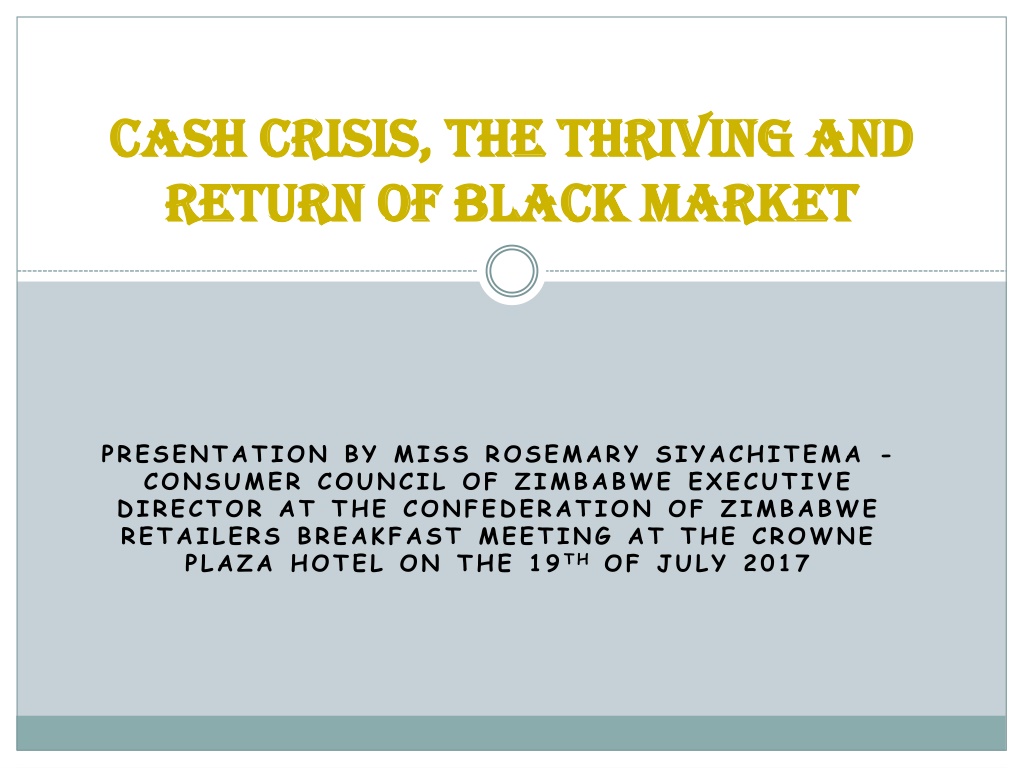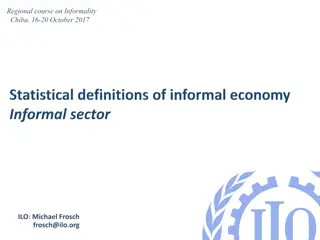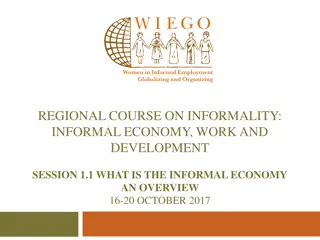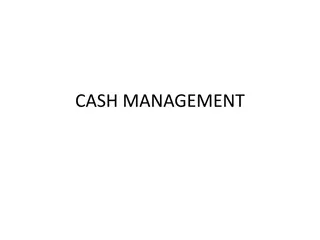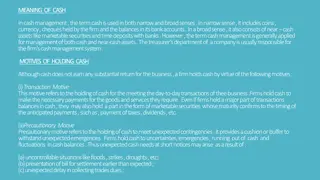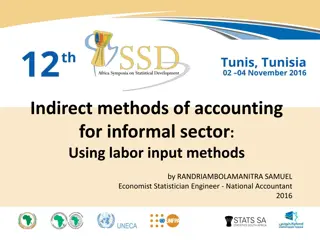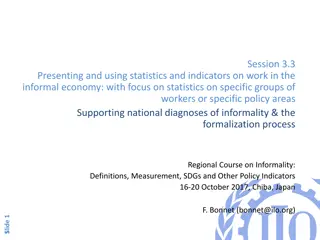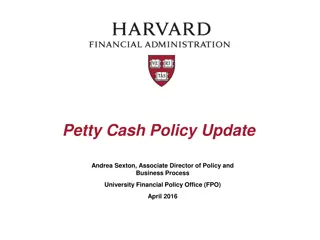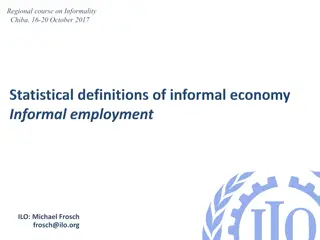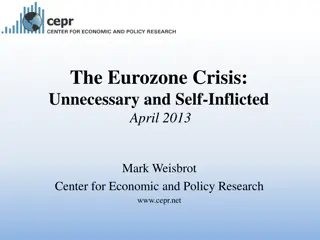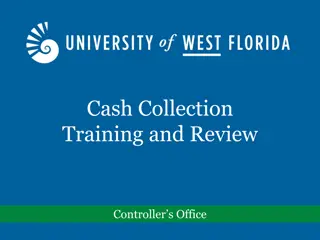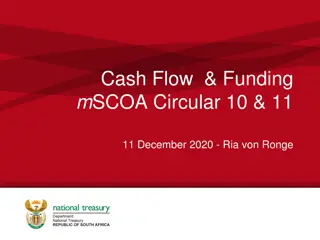Addressing the Cash Crisis and Informal Economy in Zimbabwe
The presentation by Miss Rosemary Siyachitema at the Confederation of Zimbabwe Retailers Breakfast Meeting highlighted the challenges of the ongoing cash crisis in Zimbabwe. Major causes include the introduction of Bond Notes and Statutory Instruments, dependency on foreign currency, declining investments, and informalization of the economy. The way forward involves realigning policies with the informal sector, reducing bank charges, reviving local production, and promoting buying local products to boost the economy.
Download Presentation

Please find below an Image/Link to download the presentation.
The content on the website is provided AS IS for your information and personal use only. It may not be sold, licensed, or shared on other websites without obtaining consent from the author. Download presentation by click this link. If you encounter any issues during the download, it is possible that the publisher has removed the file from their server.
E N D
Presentation Transcript
CASH CRISIS, THE THRIVING AND CASH CRISIS, THE THRIVING AND RETURN OF BLACK MARKET RETURN OF BLACK MARKET PRESENTATION BY MISS ROSEMARY SIYACHITEMA - CONSUMER COUNCIL OF ZIMBABWE EXECUTIVE DIRECTOR AT THE CONFEDERATION OF ZIMBABWE RETAILERS BREAKFAST MEETING AT THE CROWNE PLAZA HOTEL ON THE 19THOF JULY 2017
Cash crisis background Cash crisis background The major causes of the current cash crisis are the following: Introduction of Bond Notes Introduction of SI 64 Introduction of SI 20 (which was later shelved for further consultations) Dependency on a currency that is not ours Declining investments and productivity levels Dependency of imports Company closures 8. High expenditure based on funds that are not available 1. 2. 3. 4. 5. 6. 7.
Continued: Continued: The informalisation of the Zimbabwean economy has meant that: More cash is circulating outside the formal system Cash is rarely deposited with banks confidence in the banking sector has been severely affected. Thriving after hours markets that sell all products including the ones banned under the SI64 Severe forex shortages in the economy creating a thriving parallel foreign currency market People now prefer holding foreign currency in order to store value especially retailers and the banks themselves. Increase in prices for all commodities i.e. Meat, cereals, milk, cheese etc Continuous long queues at banks Visible signs of cash at Eastgate, Roadport, Copacabana bus terminus 1. 2. 3. 4. 5. 6. 7. 8.
WAY FORWARD WAY FORWARD Relook at policies that need to be realigned with the informal sector i.e. foreign currency parallel market, sale of banned goods, informal markets etc. Once there is more money circulating in the environment, less queues at the bank and consumers will be comfortable to use any other available transacting systems. Bank charges for swiping, transferring, withdrawing are still very high, the RBZ should work on these charges so that citizens gain confidence in financial sector.
Continued: Continued: Revival of production levels by re-equipping the local industry to further produce local products therefore an increase in Value Addition. Replace imports by relooking at priority industries that have to be resuscitated and how they can be adequately funded i.e. NRZ, ZISCO Steel, CAPS to promote local production. Citizens to be encouraged to buy local products to boost the economy.
Future lessons Future lessons Confidence Building Process: In future there is need for wide consultation when there are new measures to be introduced. Understanding the informal sector better: taxing the informal sector has always been a challenge. Efforts to better understand the profile and perceptions of small traders could help to engage them and establish a dialogue on tax issues thereby contributing to a culture of tax compliance. Public Resources Management
Thank you, Tatenda, Siyabonga For further information visit our website and Facebook page Our Offices 35 Rhodesville Road, Eastlea Harare Telfax: 263 4 498441 E-mail: ccz2@mweb.co.zw
